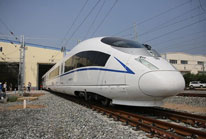


The state of China’s box office in the summer of 2016 has been altogether bleak. Revenue for July stood at 4.5 billion yuan (about $680 million), an 18 percent decline from July 2015 and also the first decrease in five years, according to film bureau of SARFT, China’s State Administration of Radio, Film and Television. August sales were even worse; as of Aug. 21, the box office takings had totaled roughly 3 billion yuan. The summer peak season has less than a week to go, and at this point it seems just about impossible for sales to reach last year’s 12.4 billion yuan.
However, the situation isn’t entirely dispiriting, at least according to industry expert Zhou Tiedong. Zhou’s message to movie makers and others in the industry is that this is just the “darkness before dawn.”
“Under government-led market regulation, China’s box office bubble, which was created by ticket supplementing and ticket sales fraud, has been pricked. From now on, the Chinese film market is gradually becoming more rational and regulated,” said Zhou, former president of China Film Promotion International and Beijing Novo United Films Co., Ltd. He added, “The quality of domestically produced movies has not changed much, and the success of high-grossing movies owe a good deal to film marketing. When ticket supplementing and marketing do not work anymore, it is time for movie producers to go back to the basics: telling good stories.”
“Ticket supplementing” has been a key word in the Chinese film industry since 2014, when booking tickets online or via apps first became popular. The new avenues also gave movie production companies a chance to distort box office sales.
Movie companies and ticket sellers poured money into ticket-selling websites in order to lower prices and boost audience numbers. On these sites, buying a ticket for a Hollywood blockbuster used to cost moviegoers 9.9 yuan (about $1.50) or even less. If viewers were really lucky, they could spend just 1 yuan to see Matt Damon on the big screen.
However, this supplementing practice led to data bubbles.
"Ticket supplementing expenses came to nearly 5 billion yuan in 2015, accounting for 10 percent of total revenue," said Wang Changtian, chairman of Enlight Media, in comments made to Xinhua. As the bubble expanded, China’s box office grew by 49 percent from 2014 to 2015, with industry insiders and consultants even predicting that China would soon surpass the U.S. to become the world’s biggest movie market.
But these good times soon came to an end.
In March, the distributor of kung fu movie “Ip Man 3” allegedly fabricated more than 7,600 screenings of the movie, and bought 56 million yuan worth of tickets. As a disciplinary measure, distributor Beijing Max Screen had its license suspended. The sanction shed light on ticket sales fraud, and now these supplements have been drastically cut.
Nevertheless, Zhou maintained that the current box office “darkness” will give way to dawn soon enough. Zhou believes this phase is part of a normal process—one that is necessary for the market to return to good order.
“The Chinese film industry will again see a healthy market and richer genres,” Zhou promised.
 World's fastest bullet train to start operating next month
World's fastest bullet train to start operating next month Huangluo: China's 'long hair village'
Huangluo: China's 'long hair village' Spectacular bridge with one of the tallest piers in the world
Spectacular bridge with one of the tallest piers in the world Magnificent view of Hukou Waterfall
Magnificent view of Hukou Waterfall A glimpse of Stride 2016 Zhurihe B military drill
A glimpse of Stride 2016 Zhurihe B military drill US Navy chief tours Liaoning aircraft carrier
US Navy chief tours Liaoning aircraft carrier Chinese American woman wins Miss Michigan
Chinese American woman wins Miss Michigan Centenarian couple takes first wedding photos
Centenarian couple takes first wedding photos Traditional Tibetan costumes presented during fashion show
Traditional Tibetan costumes presented during fashion show Top 10 livable Chinese cities
Top 10 livable Chinese cities Top 20 hottest women in the world in 2014
Top 20 hottest women in the world in 2014 Top 10 hardest languages to learn
Top 10 hardest languages to learn China’s Top 10 Unique Bridges, Highways and Roads
China’s Top 10 Unique Bridges, Highways and Roads Nation’s first Mars mission to be launched in 2020
Nation’s first Mars mission to be launched in 2020 Firms help job applicants cheat on physical examinations toavoid discrimination
Firms help job applicants cheat on physical examinations toavoid discrimination With labor costs rising, Taiwanese businesses consider leavingmainland
With labor costs rising, Taiwanese businesses consider leavingmainland Writers need scope to criticize global society
Writers need scope to criticize global societyDay|Week